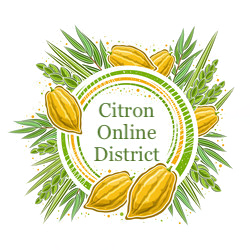
Lincoln-Douglas Quick Guide for Judges and Competitors (Google Doc)
Lincoln-Douglas Debate Framework Explained (video)
Judging Lincoln-Douglas Debate
Judging on Tabroom and Judge Etiquette (Video)
NSDA Debate Training Guide
NSDA Debate Evidence Guide
For more guides and teaching resources please join National Speech & Debate Association

What is Lincoln-Douglas Debate?
LD’s lineage dates back to the debates between Abraham Lincoln and Stephen A. Douglas during the 1858 Illinois senatorial election. The series of debates were largely focused on addressing slavery’s extension into the territories. Debaters today evaluate moral and ethical issues presented in the resolutions through philosophical thought experiments. Sometimes the journey to the objective is more important than reaching it. Do the needs of the many outweigh the needs of the few? Is it ever an acceptable amount of harm we can tolerate in a society? These are the kinds of questions that await you.
Example Topics (changes every 2 months)
Resolved: Civil disobedience in a democracy is morally justified..
Resolved: The United States should legalize the sale of human organs.
Traditional Case Structure
(Optional) Opening quote from a philosopher
(Optional) Topicality/Definitions.
(Optional) Lay the ground work of the status quo. What is and is not happening
VALUE: These are high level moral ideas. Happiness, Justice, Suffering, Utilitarianism, Consequentialism, etc.
VALUE CRITERION: The measurement which indicates that your value is being met. Ex: if my value is Justice then my value criterion could be a jury of my peers.
Contentions: This is where facts, figure, statistics meet morality
Sub point A:
Link to resolution
Harms/Impacts
Solvency/link to value criterion
(optional) Sub point B
Speeches and Speech Times
Each competitor can take 4 minutes of in-round preparation time in 30 second blocks
Affirmative Constructive (6 minutes)
Affirmative case presentation
Negation-Affirmation Cross Examination (3 minutes)
Negative questions the affirmative for clarification and dismantlement
Negative Constructive (7 minutes)
Negative case presentation and/or refutation of the affirmative
Affirmation-Negation Cross Examination (3 minutes)
Affirmative questions the negative for clarification and dismantlement
First Affirmative Rebuttal ( 4 minutes)
Refute the points of negation, reaffirm your case, refute the negative case, narrow the scope of the arguments and establish the voting issues, no new contentions
Negative Rebuttal (6 minutes)
Refute the affirmative case, advocate the negative case, narrow the scope of the arguments and win the voting issues, no new contentions
Second Affirmative Rebuttal (3 minutes)
Synthesize the round, advocate for the affirmative case over the negation, and win the voting issues, no new evidence
Questioning
LD Cross-Examination (CX) is very traditional in that the debater asking the questions is in control of the examination period and the opposition cannot ask any questions outside of clarifying the examiners question. To put it bluntly if it is the Aff-Neg CX only the Aff should be asking questions and vice versa. It is not unusual for a debater to be satisfied with an answer and interrupt their opponent so they can move onto other material they would like to address. This is the most combative phase of any debate but there is an amount of mutual respect and sportsmanship expected. For many this is where speaker points are decided.
Value: A value (V) is the most abstract piece of the LD case. These can feel nebulous, non-tangible, but offer the moral imperative for the round. Values include; happiness, justice, life, autonomy, etc. For example, for the above resolution the negative Value will be “ Justice ”.
Value Criterion: In many ways the value criterion (VC) can be considered a metric to measure the existence of, and thus a prerequisite to, the V. For this reason it is imperative that debaters integrate the VC in their contentions. It is common for VC to be structured as a verb + noun. Examples include: protecting life, minimizing suffering, creating equality, etc. For the example above, the Negative Value Criterion will be, “ a jury of your own peers ” would be the best metric for Justice.
Framework: Framework is the combination of V + VC = framework. An example combination would be a Value of Justice and the Value Criterion of being tried by a jury of your peers . A debater might reference the “framework” to reference the moral imperative. The existence of the process of “a jury of your own peers” is the real world measure in this example that Justice exists in the world proposed. This is then supported with contentions that contain evidence to support how well the VC acts as a metric and functions as a proof for the existence of the V. The inverse being no jury = no justice.
Contentions: These are the complete packaged arguments that have a direct link to the resolution, addresses an issue, and leverages the moral imperative of the framework as a reason to vote. Continuing with the V+VC example from before but within the context of a resolution. A negative contention could read; “ a jury of your peers is the best way to address dynamically local social issues which otherwise would not be properly addressed and lead to unjust/false imprisonment” ; followed by evidence which supports the claim. Contentions should be numbered for easy reference such as 1, 1a, 1b, 2, 3a, 3b. This allows both the judge and the opponent to flow the debate more easily. If an opponent did not address one of the numbered contentions the debater is encouraged to call this out to the judge during their rebuttals, this is known as “dropping an argument”.
Impacts/Voter Issues: These are the reasons that a judge votes for a given team. Debaters will present what hypothetical worlds could exist if a judge were to vote Aff/Neg and this choice is how round winners are determined. This is normally done throughout the rebuttals.
Flow: This term is in reference to the notes taken during a debate that comes from the “flow” of arguments. A judge is encouraged to write down every argument/contention of each team and gauge whether the opposing team addressed/clashed with their opponents contention.
Clash: Clash happens when there are two proposed positions that are in direct conflict with one another. A good debate should have plenty of clash, students are encouraged to directly attack the contentions, values, value criterion and framework of the opposition, not just defend their position.
Caselist Wikis
The National Argument List wikis for Policy, Lincoln-Douglas Debate, and Public Forum are online resources where debaters may post their open disclosure for evidence and cases.
Wiki for High School Policy Debate
Wiki for High School Lincoln-Douglas Debate
Wiki for High School Public Forum Debate
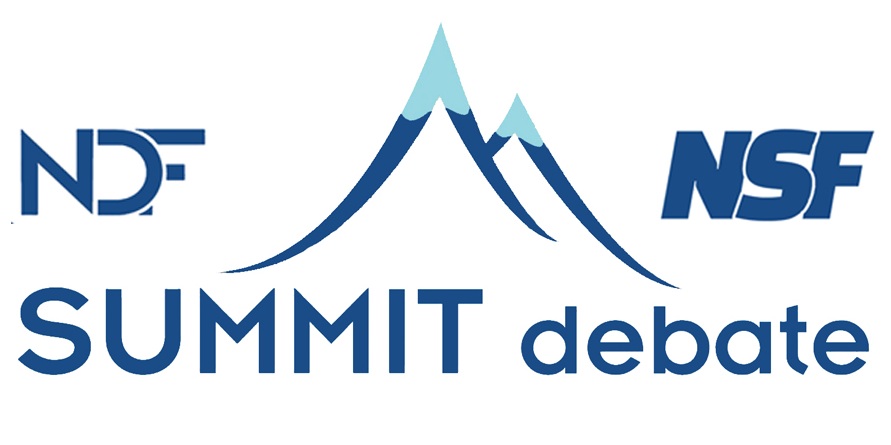
national debate forum: lincoln douglas

In this one-on-one format, students debate a topic provided by the National Speech & Debate Association. Topics range from individual freedom versus the collective good to economic development versus environmental protection. Our camp will help students go from the research phase of case construction all the way through the actual debate presentation.

Our Lincoln Douglas Sessions are geared towards beginner and intermediate debaters. Students will build the fundamental skills sets needed for argumentation and to adapt to a variety of different styles.

Please wait while your request is being verified...
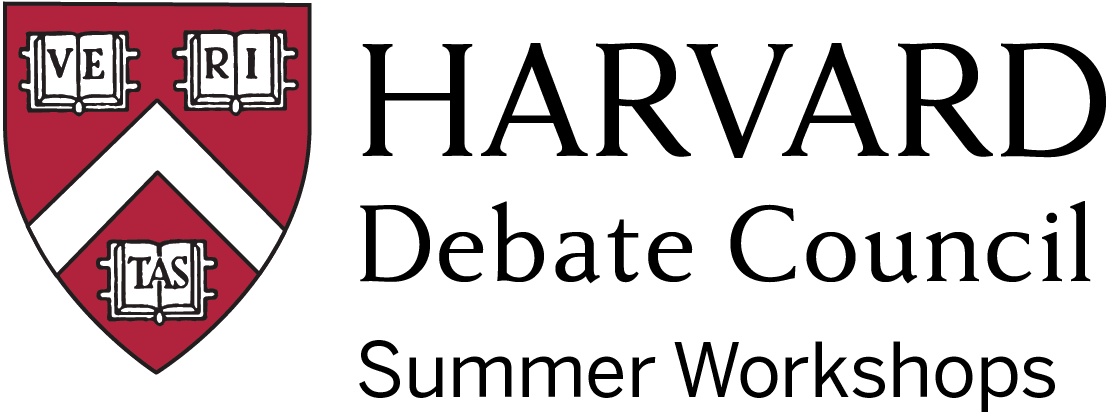
Lincoln-Douglas
Lincoln-douglas debate, learn foundational skills in style, content, and strategy in lincoln douglas debate.
This workshop will prepare students to compete in Lincoln-Douglas debate.
Level: All Levels
The workshop is designed for students with experience in Lincoln-Douglas debate.
Summer 2025 Sessions
In-Person: Session Two: July 13 - July 25, 2025
In-person Resident: $4,049 Commuter: $2,949
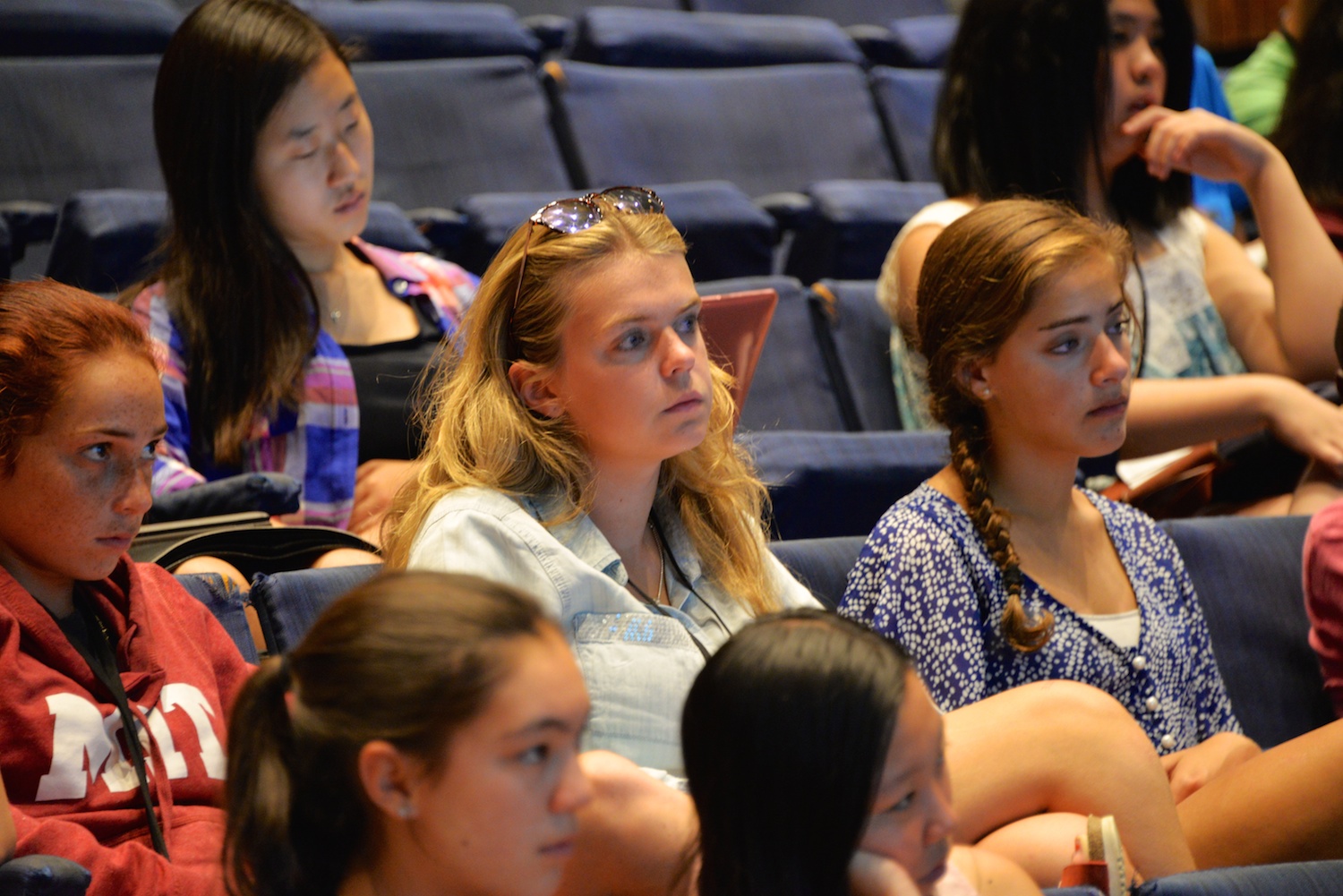
More Information Coming Soon!

About the Program
Our workshop was created to provide the best possible educational experience for all levels of students. We ask you to consider some important qualities that distinguish the Harvard Debate Council Lincoln Douglas Debate Camp from others. Our Lincoln Douglas staff this year is unlike any other in terms of experience, diversity of teaching styles, argument preferences, and other core identifiers of diversity. Members of our staff have coached championships (and/or won themselves) at all levels of forensic competition including the National Debate Tournament, the Cross Examination Debate Association, the National Speech and Debate Association Championships, the Tournament of Champions, the National Debate Coaches Association Championships, and virtually every major invitational in the United States.
The Harvard Debate Council Lincoln Douglas program seeks to balance a true understanding of complex concepts while making sure students have the practical tools needed to enjoy competitive success during the debate season. Our approach is battle-tested through many years of working with some of the most successful Lincoln Douglas debaters in the country. We believe the best way to achieve our goal for our students is to tailor our instruction to meet the needs of our Lincoln Douglas students. We do not believe “one type of instruction fits all.” We place incredible career educators alongside the best young Lincoln Douglas debate alumni to combine the best debate trends with serious educational thought. There are many great debaters. There are far fewer great teachers of debate. We believe that students, parents, and coaches should collectively weigh all of the available information to assess which summer experience would best benefit each student, and work hard to implement this for students attending our Lincoln Douglas Debate Camp.
Learning Objectives
The Lincoln Douglas curriculum of any institute is crucial to what a student is likely to gain. In this regard, one should consider whether a debate institute offers a curriculum that addresses the diversity of conditions students are likely to confront in their debate careers. One should also consider whether the student would be taught an educationally sound set of practices or a series of tricks that happened to work at a single tournament or in front of a small number of judges.
Our senior staff members have taught at dozens of workshops around the country. The core of the staff is composed of professional educators, some with Master’s degrees in education, who are also competitive coaches in the debate game.
Our approach to Lincoln Douglas debate is pedagogically sound and time-tested in terms of competitive success. Students will have guaranteed access to all Lincoln Douglas Debate staff members. At many institutes, a student’s exposure to staff is limited to lab leaders and large group lectures. We want all students to have one-on-one attention with the instructor of their choice at some point during their stay.
The curriculum is designed to give students a common knowledge base in Lincoln Douglas debate, yet avoids hours and hours of lectures on issues that have become tangential to contemporary Lincoln Douglas debate. Each year we have modified our program at previous workshops based on feedback from coaches and students.
Components of our Lincoln Douglas Debate Camp curriculum include the following:
- Our pedagogy emphasizes small lab groups. Students will be given enrichment exercises to accelerate their growth.
- The Lincoln Douglas Debate literature base many students are using is changing. While we teach about Rawls, Nozick, Kant, and JS Mill we will also teach you about Wilderson, Hartman, Hooks, and Charles Mills.
- We focus on teaching students ethically sound best practices for Lincoln Douglas Debate in dealing with the arguments that seem to pervade many circuits.
- We offer a balance of large group lectures and electives to allow students to focus on things they wish to learn/work on.
- More actual debating (after sufficient time to prepare and modify cases) to allow students the opportunity to address weaknesses and emphasize areas of strength.
- Electives -Our workshop offers a vast array of electives beginning the first week of the workshop. At Harvard Debate Council workshops, we attempt to offer electives that cater to all skill levels. Most importantly, students have to opportunity to choose electives during each elective cycle.
The Harvard Debate Council workshops will also focus on how to research, a skill that many camps seem to have put on the back burner. Attention will also be placed on effective case writing, effective speaking techniques, strategic decisions, and general tips to help students achieve whatever goals they have set for themselves in Lincoln Douglas Debate.
Sample Schedule
The following is a sample schedule for the Lincoln-Douglas Debate Program. Schedules will vary by division and day. This schedule is provided to give you an idea of what a typical day looks like at Harvard Debate Council Summer Workshops.
8:00 am – 9:00 am – Breakfast 9:00 am-10:15 am — Electives Flowing Intro to the K Politics DA I: What Is It? Debating Someone Older [or better] than you….and winning! Queer Theory I: Judith Butler Baudrillard Advanced CX 10:15am-11:30am — Lab Session 11:30 am-1:00 pm — Lunch 1:00 pm-1:45 pm — Advisory Groups 2:00 pm-3:45 pm — Lab Session 4:00 pm-5:00 pm — Electives Topicality I: Introduction Extensions & Weighing Politics DA II: Midterms Critical Pedagogy Performance Debate In an Hour 5:00-6:30 pm — Dinner 6:30 pm-8:00 pm — Evening Activities/Office Hours
What Students and Parents Say
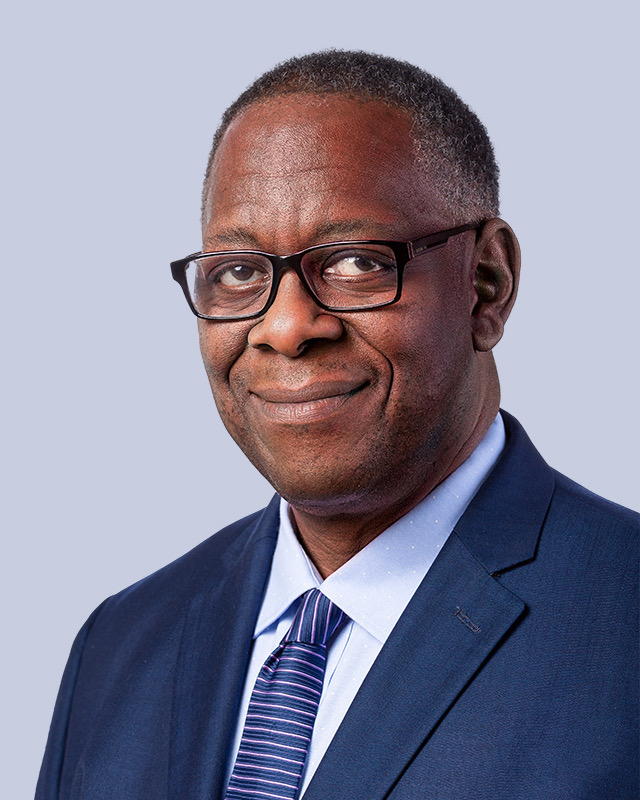
Aaron Timmons Curriculum Director
Aaron W. Timmons is an internationally acclaimed educator, debate coach, and program director. Aaron’s success as a debate coach/trainer is historic and unparalleled. He is the former Co-Head Coach of the USA Debate team that WON the World Schools Debating Championships in Hanoi, Vietnam in 2023. During his thirty-year tenure as Director of Debate at Greenhill School in Addison, Texas, he has worked to build one of the most successful speech and debate teams in the United States and is one of only two coaches in the history of the United States whose students have won the NSDA National Championships in three separate debating categories (in addition to numerous finalists. He is recognized as a Hall of Fame member by the National Speech and Debate Association, the Tournament of Champions, and the Texas Forensic Association. Mr. Timmons also serves as an assistant debate coach for Harvard College.
In the realm of Lincoln Douglas Debate Mr. Timmons has coached students to win the multiple championships of the National Speech and Debate Association, the Tournament of Champions, the National Debate Coaches Association Championship, as well as the Texas Forensic Association. Mr. Timmons students has also won the Dukes and Bailey award for the most outstanding student of that competitive school year in 2013, 2016 and 2019.
Mr. Timmons has taught at schools, workshops, and summer programs across the world for decades across all ranges of skill levels. Thanks to the high demand for Aaron’s public speaking expertise, he has conducted debate and public speaking training in the United Arab Emirates, Slovenia, Mexico, and Qatar. As a co-coach of the USA National Debate Team, he has led students to international success in competition venues including Canada, Croatia, Germany, Indonesia, Mexico, Singapore, Slovenia, Taiwan, Vietnam, and Thailand. Aaron’s experiences with both international students and audiences allow him to teach communications with a particular eye to cultural differences and multiple worldview
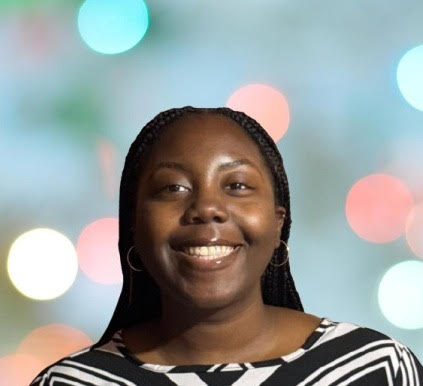
Temitope Ogundare
Temitope Ogundare has competed for 8 years at both Newark Science and Rutgers-Newark across varying formats (policy, LD, NDT/CEDA policy, NFA-LD, Public Forum, and British Parliamentary). In high school, Temitope was invited to multiple Round Robins, in many late elimination rounds, and qualified to and competed at NSDA Nationals in both policy and LD. At Rutgers, Temitope championed multiple tournaments across the varying formats and worked to better the debate community such as engaging in competition with the Bard Prison Initiative. Temitope has been coaching alongside competing since 2019 and is continually inspired by debaters who care to learn and grow. She loves teaching critical and policy based strategies with her top 3 2NRS being the K, T, DA and believes that more debaters should be willing to engage both sides of the library. She loves the practice of research and is excited to have discussions on all the ins and out of debates in both contents and forms.
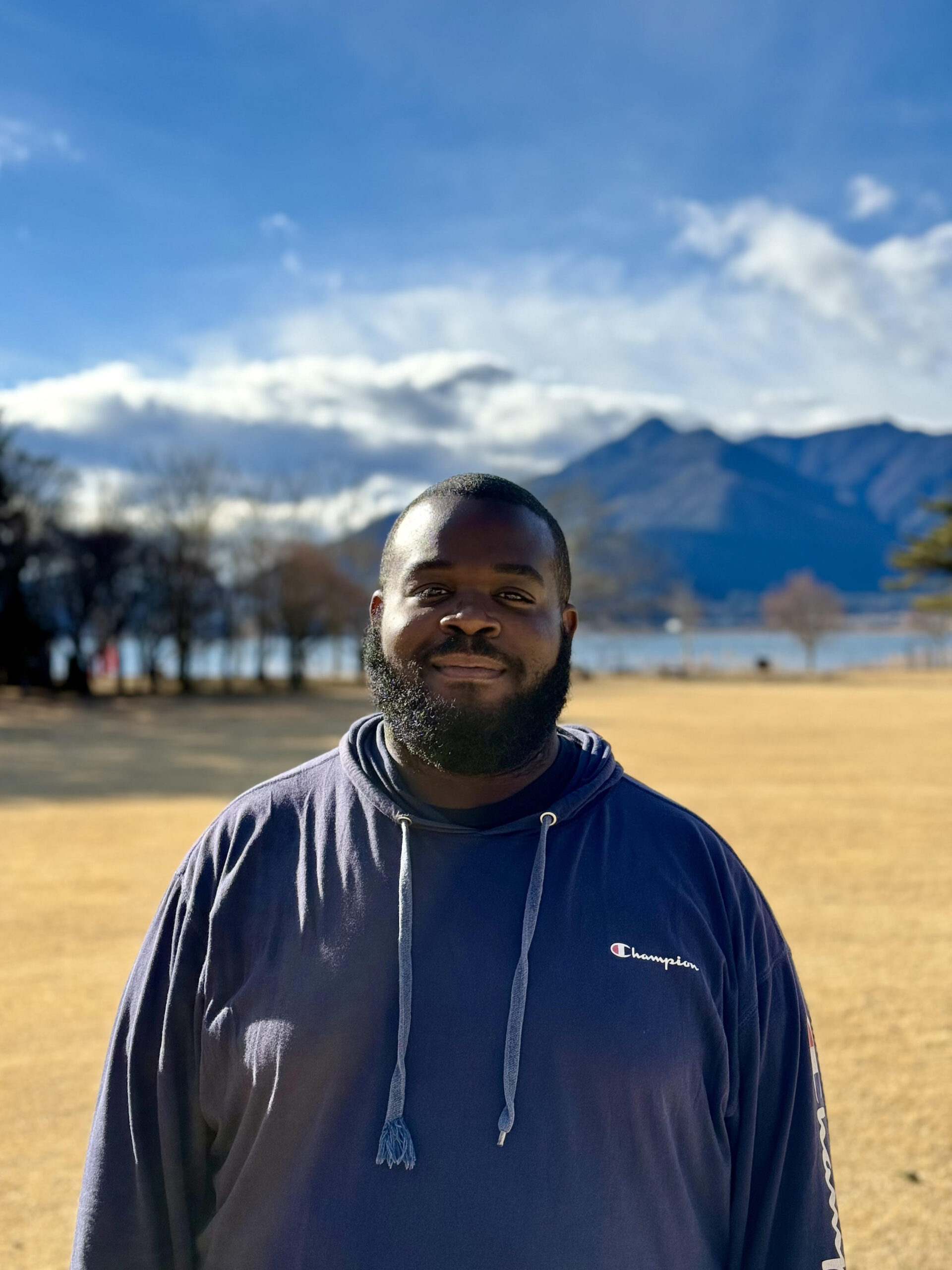
Elijah Smith
Eli Smith has 17 years of experience as a competitor and coach in debate. He has coached champions of the TOC and NDCA, a TOC top speaker, and multiple other top speakers and elim participants in LD debate. Eli has an extensive record of coaching First-Round teams in college policy debate and had teams place in the late elims of both CEDA and the NDT. His favorite part of debate is CX and he believes more students would benefit from focusing on mastering this speech. He believes that well-rounded students perform the best each year and is happy to work with students on almost any argument. Eli's favorite debate strategies involve the use of Kritiks, counterplans, and smart case presses.

Colton Gilbert
Colton is a Debate Coach and Teacher at Little Rock Central High School in Arkansas. He has been involved in competitive speech and debate since 2004. In. undergrad, Colton focused on Communication Studies with a minor in mathematics. In grad school, Colton received a Master’s in Communication Studies from Arkansas State University and a Master’s in Secondary Education from the University of Arkansas at Little Rock. In 2013 Colton was coach of the 2013 Team IPDA collegiate national champion. Since the summer of 2014, Colton has been Arkansas’s delegate at NFHS Policy Debate Topic Selection where he served as chair of the Wording Committee in Summer of ’22; he authored the national policy debate topic for the 2020-2021 school year (Criminal Justice Reform). Colton is the recipient of the Marian G. Lacey Award which is given to the Educator of the Year for the Little Rock School District. Colton just finished his twelfth (12th) year of teaching at the high school level. In addition to his debate endeavors, Colton champions himself as an advocate for his students; he is a recent recipient of the Courageous Client Award from the Lawyers’ Committee at the Higginbotham Gala 2024 for his role in Walls et. al v Sanders challenging the anti-CRT ban in the state of Arkansas. Colton has always prided himself on being an advocate and centers his debate coaching philosophy by reminding his students that “the well from which you drink you did not dig.” Colton is an avid reader, intense video gamer, and innovative educator that seeks to challenge his students in ways he wish he had gotten in school. In his spare time, he enjoys video games on his Xbox and spending time with his beloved niece. Colton’s areas of emphasis include research tactics, race-centric arguments, kritikal debate as well as IR-based arguments.
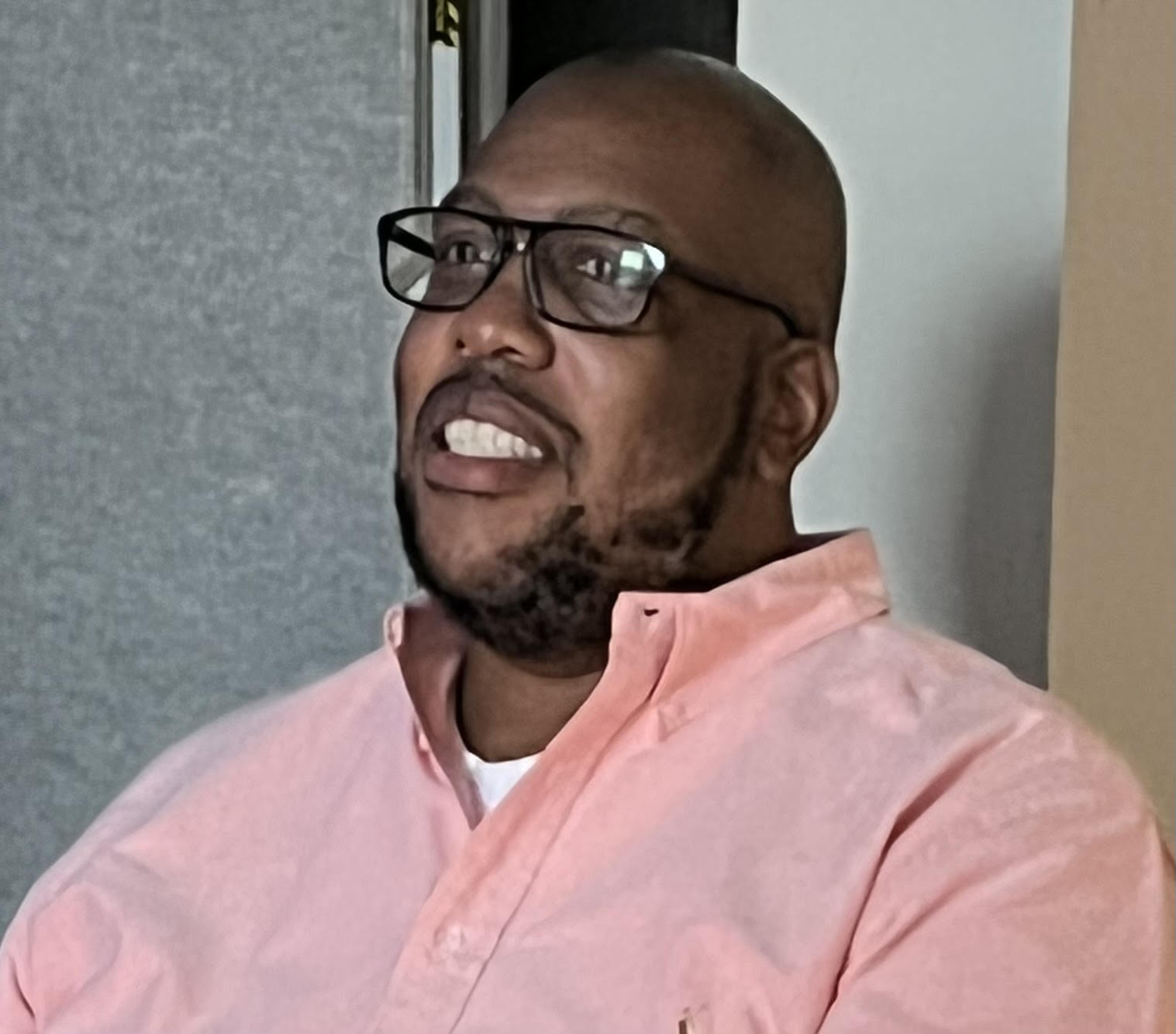
Jonathan Alston
Jonathan Alston is a high school English teacher and a two-diamond coach for Science Park High School (Newark Science) in New Jersey. After graduating from Yale University, Jonathan coached eight NJ State Champions in Lincoln-Douglas debate, was the coach of the 2018 NDCA Dukes/Bailey winner, and has had debaters make it to late elimination rounds and top speaker positions at Stanford, Emory, Greenhill, Wake Forest, Harvard, the Tournament of Champions, and NSDA Nationals, including the second speaker in policy debate in 2015. He has also coached two members of the USA Debate team. Because of Jonathan’s commitment to leadership and service to the speech and debate communities, he was named 2014 National Debate Coach Association Educator of the Year, the 2016 Glenn Pelham Award winner, and a member of the prestigious Barkley Forum Key Society. He was inducted into the National Speech and Debate Association Hall of Fame in 2023.
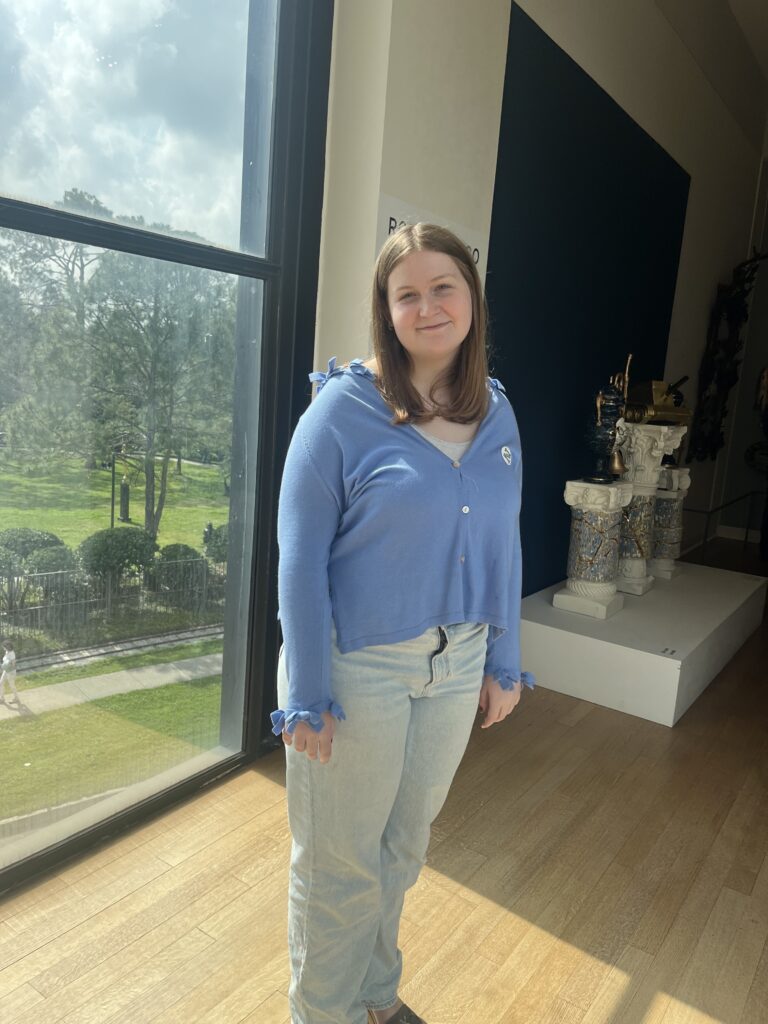
Elizabeth Elliott
Elizabeth Elliott is currently studying Political Science and Anthropology at Wake Forest where she debates. Debating at Wake she has reached elimination rounds at multiple college tournaments.. In high school, she did LD at Isidore Newman School where she cleared at the TOC twice and received ten round-robin invitations. She is currently an assistant LD coach at the Greenhill school. Her interests in the debate include topicality, process counterplans, creative AFF writing, impact turns, and kritiks. She is so excited to work with students this summer!
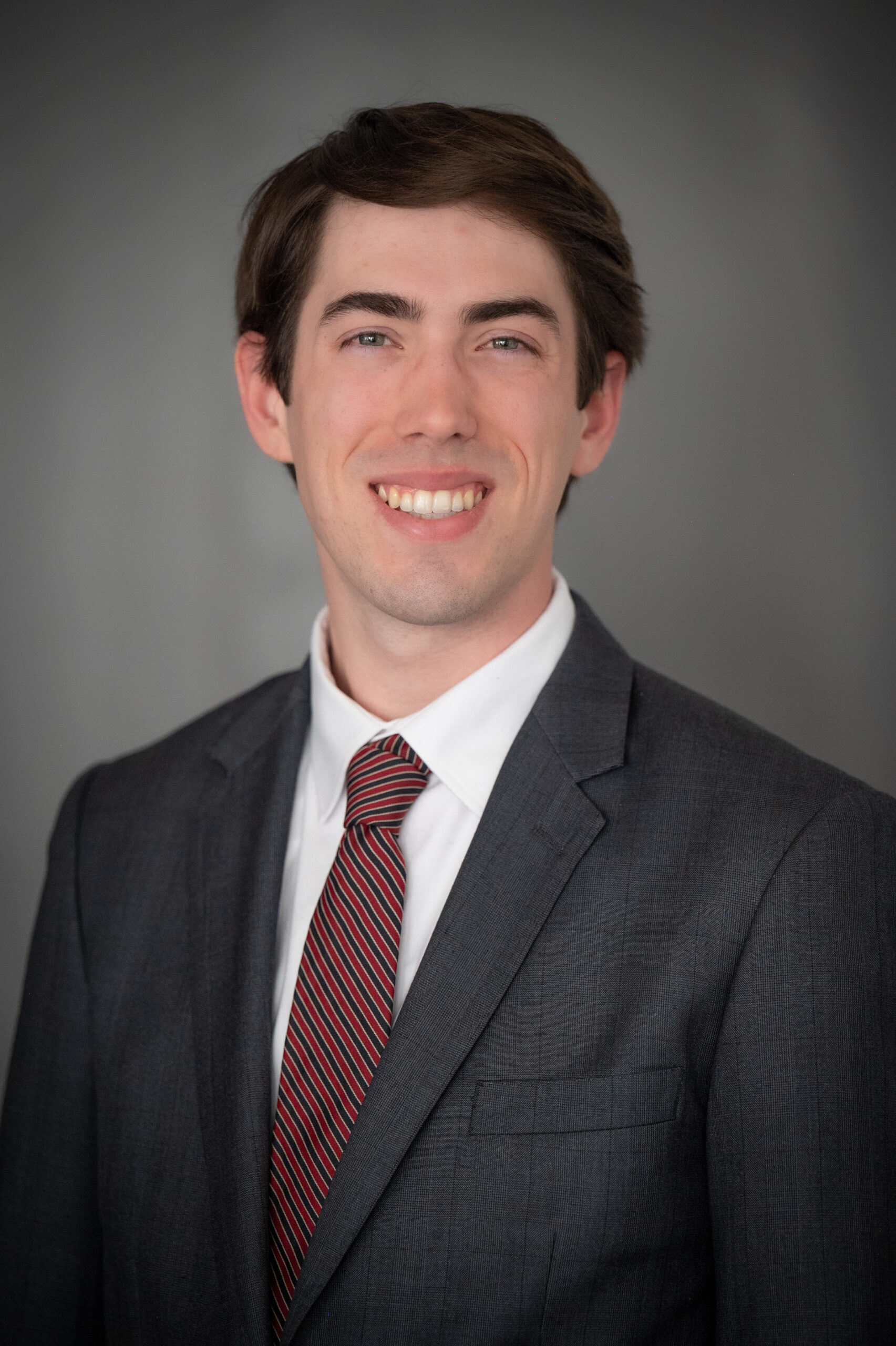
Blake Ziegler
Blake Ziegler is the Associate Director of Debate and Speech at The Delores Taylor Arthur School for Young Men in New Orleans, LA. With over a decade of experience in Lincoln-Douglas Debate, his students regularly reach elimination rounds at local and national tournaments. He has also coached NSDA elimination round participants every year and state champions. He is well-versed in every argumentative style, but has particular interest in philosophy and critical arguments. His favorite part of debate is research and developing narrative, which he is excited to share the joys of this summer. Outside of debate, Blake works in Jewish advocacy. He graduated from the University of Notre Dame with a B.A. in political science and philosophy.
Developed/Maintained by Suddha.Marketing | Harvard Debate Council is an undergraduate organization of Harvard College.
- What majors and programs are available at WKU?
- How do I apply for financial aid and scholarships?
- Where can I register for a campus tour?
- What housing options are available?
- How can I contact an academic advisor?

WKU sponsors National Speech and Debate Association Tournament in Louisville
- WKU Forensics
- Wednesday, June 22nd, 2022
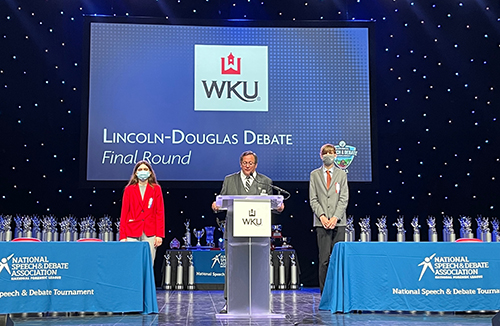
WKU sponsored Lincoln-Douglas Debate at the 2022 National Speech and Debate Association Tournament in Louisville. From left: LD Debate National Champion Hannah Owens Pierre of Edina High School in Minnesota; Michael Patterson, Chair of Lincoln Douglas Debate and Speech and Debate teacher at Guymon Public Schools in Oklahoma; and LD Debate National Runner-Up Easton Logback of Olathe East High School in Kansas.
Thousands of high school students, parents, teachers and coaches gathered in Louisville last week for the 2022 National Speech and Debate Association Tournament . WKU sponsored events at the tournament hosted at the Kentucky Expo Center and several high schools and middle schools in Louisville June 12-17.
The tournament featured the top 6,000 high school student speech and debate competitors from the organization’s roster of 143,000 eligible members around the United States as well as nine other countries.
The National Speech and Debate Association offered over 20 public speaking, interpretation and debate events. This year, WKU sponsored Humorous Interpretation and Lincoln-Douglas Debate. As sponsors of the competition, WKU representatives spent the week judging, interacting with coaches, and recruiting students to join the national championship Forensics program at WKU .
“WKU is a longtime supporter of the National Speech and Debate Association, but this was our first year back to in-person competition since the beginning of the pandemic,” Director of Forensics Ganer Newman said. “We were thrilled at the opportunity to sponsor the exceptional competition in Lincoln-Douglas Debate this year. While we are longtime supporters of Humorous Interpretation, it was awe inspiring to witness the first Black Muslim woman in a hijab win the national championship in the event.”
WKU’s Director of Debate Chad Meadows said, “Sponsoring Lincoln-Douglas debate at the NSDA was a first for the program. It was important to emphasize on this stage the scope of our team as one of the country’s leaders in speech and debate. The tournament was a huge success, and it was incredible to see the hosts from Louisville, Kentucky, showcasing the best this state has to offer. It was exciting to associate Western Kentucky University with the largest high school academic conference in the country.”
- More: Check out the WKU Forensics Facebook page or follow @wkuforensics and @DebateWku on Twitter.
Contact: Ganer Newman, (270) 745-6340
Western Kentucky University prides itself on positioning its students, faculty and staff for long term success. As a student-centered, applied research university, WKU helps students expand on classroom learning by integrating education with real-world applications in the communities we serve. Our hilltop campus is located in Bowling Green, Kentucky , which was recently named by Reader’s Digest as one of the nicest towns in America, just an hour’s drive from Nashville, Tennessee.
Back to News
Dec 12th, 2024
The WKU Big Red Marching Band’s highly anticipated performance in the 2025 London New Year’s Day Parade (LNYDP) is just around the corner. This honor comes during a milestone year, as 2025 marks the 100th anniversary of the WKU Band program.
Dec 10th, 2024
Here is a listing of WKU events for Tuesday, December 10, through Saturday, January 18.
Dec 9th, 2024
12/10/2024 - 1/4/2025
Nov 15th, 2024
Western Kentucky University (WKU) celebrated the opening of the WKU College of Health and Human Services (CHHS) Community Health Sciences Complex with a ribbon-cutting ceremony and open house today.
Nov 14th, 2024
Dr. Missy Travelsted, DNP, FNP-C, PTA presented her research "Anabaptists' Knowledge of Newborn Screening" at the 2024 National Amish Health Care Conference.
Western's Mock Trial team boasts impressive team and individual rankings from their tournaments in October and November.
View Archive
Some of the links on this page may require additional software to view.

IMAGES
COMMENTS
2005 National Speech & Debate Tournament – Resolved: That, when a choice is required for public high schools in the United States, government funding should prioritize vocational education over college preparatory education. April 2005 – Resolved: The United States should issue guest worker visas to illegal aliens.
Start Here: Teaching Lincoln-Douglas Lincoln-Douglas Debate (LD) is a one-on-one event where debaters argue against one another on a specified resolution. Students prepare cases and then engage in an exchange of cross-examinations and rebuttals in an attempt to convince a judge that they are the better debater in the round.
%PDF-1.5 %âãÏÓ 785 0 obj > endobj xref 785 28 0000000016 00000 n 0000004871 00000 n 0000004992 00000 n 0000005457 00000 n 0000005887 00000 n 0000006380 00000 n 0000006417 00000 n 0000006531 00000 n 0000006643 00000 n 0000008550 00000 n 0000010611 00000 n 0000012380 00000 n 0000014165 00000 n 0000015792 00000 n 0000017611 00000 n 0000019337 00000 n 0000020894 00000 n 0000023543 00000 n ...
Debating the topic "Resolved: Violent revolution is a just response to political oppression."Affirmative speaker: Nehal Chigurupati, University School, Ohio....
For more guides and teaching resources please join National Speech & Debate Association. What is Lincoln-Douglas Debate? LD’s lineage dates back to the debates between Abraham Lincoln and Stephen A. Douglas during the 1858 Illinois senatorial election. The series of debates were largely focused on addressing slavery’s extension into the ...
The National Argument List wikis for Policy, Lincoln-Douglas Debate, and Public Forum are online resources where debaters may post their open disclosure for evidence and cases. Wiki for High School Policy Debate. Wiki for High School Lincoln-Douglas Debate. Wiki for High School Public Forum Debate
national debate forum: lincoln douglas In this one-on-one format, students debate a topic provided by the National Speech & Debate Association. Topics range from individual freedom versus the collective good to economic development versus environmental protection.
During debates, once cases are read, rebuttals and refutation occurs, along with cross-examination questions. Debates typically last about 45 minutes, and are leveled according to the experience level of the debaters. From the National Speech and Debate Association: In this one-on-one format, students debate a topic provided by the Association.
In the realm of Lincoln Douglas Debate Mr. Timmons has coached students to win the multiple championships of the National Speech and Debate Association, the Tournament of Champions, the National Debate Coaches Association Championship, as well as the Texas Forensic Association. Mr.
Jun 22, 2022 · WKU sponsored Lincoln-Douglas Debate at the 2022 National Speech and Debate Association Tournament in Louisville. From left: LD Debate National Champion Hannah Owens Pierre of Edina High School in Minnesota; Michael Patterson, Chair of Lincoln Douglas Debate and Speech and Debate teacher at Guymon Public Schools in Oklahoma; and LD Debate National Runner-Up Easton Logback of Olathe East High ...